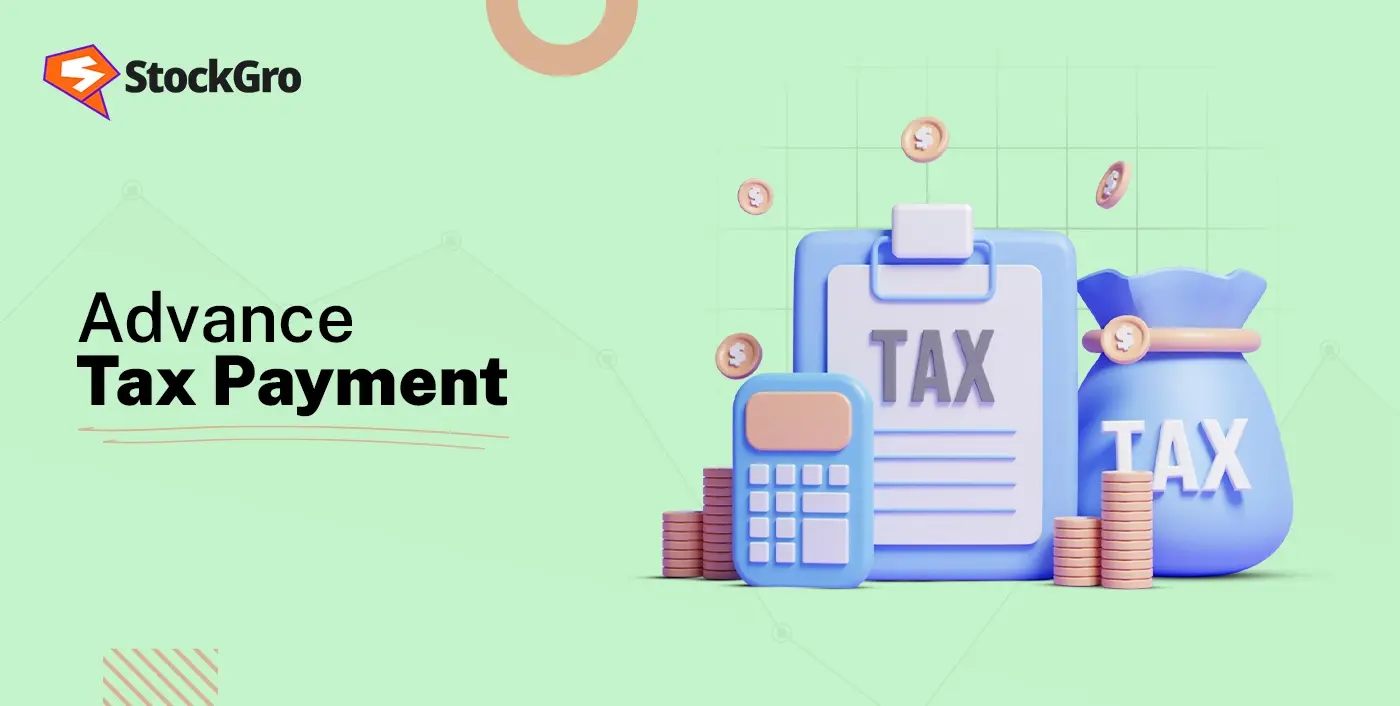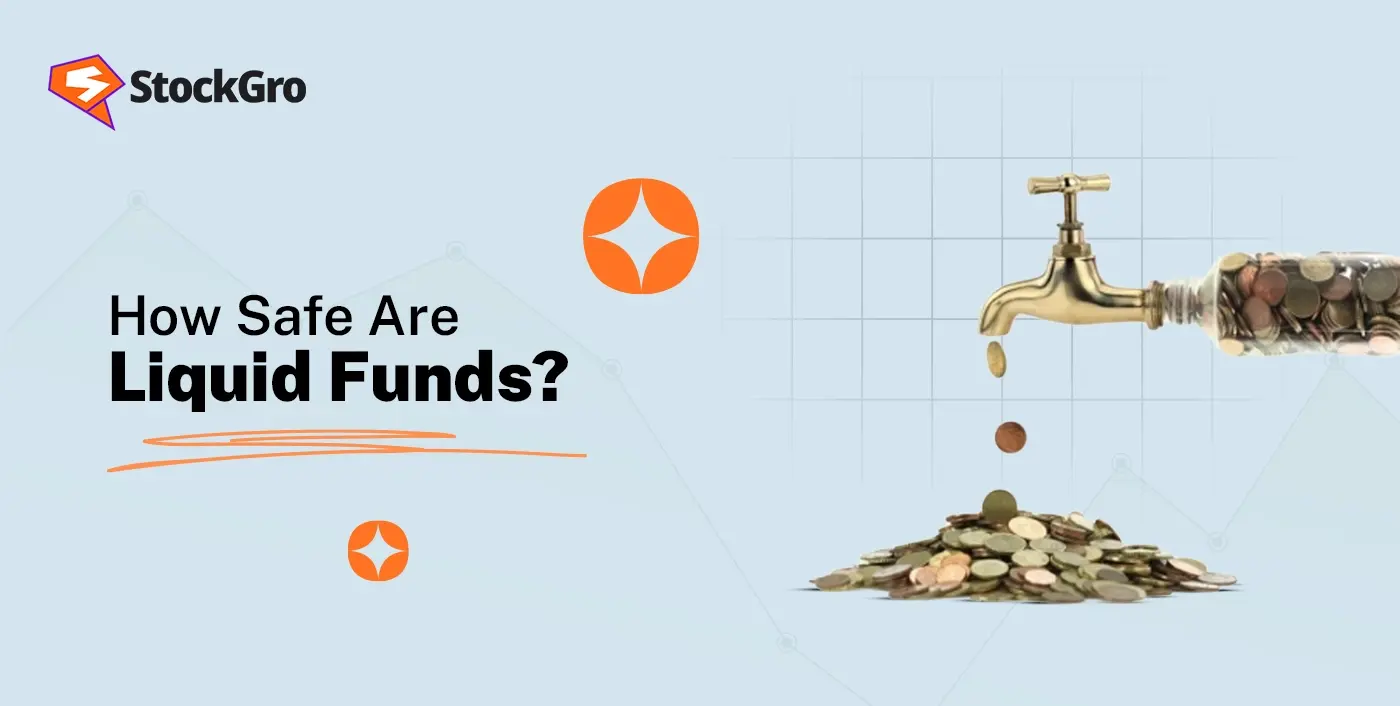
Paying a large sum in taxes at once can feel overwhelming. An advance tax payment helps to ease that pressure by allowing taxes to be paid in instalments throughout the year.
In fact, in the year 2023–24, the government collected over ₹4.36 lakh crore in advance tax, a 22.61% growth. For individuals with multiple income sources or significant interest income, this system ensures a smoother cash flow and eliminates penalties. Now, let’s get started and learn about it in detail!
What is advance tax & why is it important?
As per Section 208 of the Income Tax Act, 961, advance tax is a system by which a taxpayer pays their estimated annual tax in instalments over the financial year. Instead of paying it all at once while filing the return, spread it over four instalments. It is important because:
- Avoids penalty: The taxpayer won’t be charged interest under Sections 234B and 234C if they pay on time.
- Better cash flow: It breaks tax into manageable parts rather than one large amount.
- Mandatory compliance: Paying timely ensures following the income tax rules under the IT Act, 1961.
- Helps government planning: It ensures a steady revenue flow for government schemes and infrastructure.
Also read: Section 10 of the Income Tax Act: Claim Your Exemptions
Who all need to pay for it?
Advance tax applies if an individual’s total tax liability in a financial year surpasses ₹10,000. Here’s who is liable to pay it:
- Advance tax for salaried employees applies when they have additional income from rent, capital gains, or interest.
- Freelancers and professionals such as consultants, doctors, and architects earn income outside of their salaries.
- Business owners, including small traders, retailers, or e-commerce sellers.
- Investors with significant short-term capital gains or dividend income.
- Taxpayers going for presumptive taxation under Section 44AD or 44ADA must pay the entire tax by 15 March.
- NRIs with Indian income exceeding the ₹10,000 tax threshold.
- Pensioners with additional income apart from their pension (like rental income).
Calculating advance tax payment: Example
Let’s take the example of Ms. Ahuja, a salaried individual, who earns ₹12 lakh annually. She earns ₹2 lakh from freelance content writing and ₹1 lakh from capital gains. Her total estimated income is ₹15 lakh. After deductions and rebates, her estimated tax is ₹1.56 lakh under the old regime.
She must pay this in instalments as follows:
| Due date | Cumulative percentage payable | Amount (₹) |
| 15 June 2025 | 15% | 23,400 |
| 15 September 2025 | 45% | 70,200 |
| 15 December 2025 | 75% | 1,17,000 |
| 15 March 2026 | 100% | 1,56,000 |
By paying in this manner, she avoids 1% monthly interest under Section 234C and ensures smooth compliance.
Read more: Are you a Senior Citizen? How Budget 2025 Could lower your tax burden
Steps to make an advance tax online payment
Advance tax payment is easy and can be completed online by following these steps:
- Navigate to the Income Tax Department’s official e-payment portal.
- Opt for Challan No. 280 to pay advance tax.
- Submit essential documents such as PAN, assessment year, address, and tax amount.
- Pick the preferred payment method (Net Banking, UPI, Wallet or Debit Card).
- Finalise the payment and download the receipt for future reference.
Online payment makes sure that tax is credited immediately and helps meet deadlines effortlessly.
Advance tax due dates for 2025-2056
Under Section 211, advance tax instalments must be paid within the same financial year. Knowing advance tax due dates for FY 2025-2026 helps you avoid interest under Sections 234B and 234C.
For regular taxpayers
| Due date | Advance tax payment criteria |
| On or prior to 15th June 2025 | 15% of advance tax liability |
| On or prior to 15th September 2025 | 45% of advance tax (after reducing tax already paid) |
| On or prior to 15th December 2025 | 75% of advance tax (after reducing tax already paid) |
| On or prior to 15th March 2026 | 100% of advance tax (after reducing tax already paid) |
For taxpayers under presumptive taxation (Section 44AD & 44ADA)
| Due date | Advance tax payment criteria |
| On or prior to 15th March | 100% of total advance tax liability |
Advance tax payment exemptions
A certain class of taxpayers are exempt from paying advance tax as per the legislation, these include:
- Senior citizens (aged 60+) with no income from business or profession.
- Individuals with a total tax liability lower than ₹10,000 after TDS.
- Those earning only agricultural income (exempt from income tax under Section 10(1)).
Note: Exemptions are not automatic. One must evaluate their total taxable income, including income generated from any investments or secondary sources.
Interested in learning more about exemptions under Indian law? Read: Discover transport allowance rules & tax exemptions!
Conclusion
Advance tax payment ensures timely tax planning, helping you steer clear of last-minute financial stress. Paying in instalments helps avoid major year-end payments and penalties. Salaried employees with multiple income streams should check their tax liability regularly. To make compliance easy and swift, opt for the online payment method.
FAQs
Advance tax must be paid in four instalments: 15th June, 15th September, 15th December, and 15th March. These dates apply to both individuals and businesses with tax liability over ₹10,000 in a financial year. Missing these deadlines leads to interest under Sections 234B and 234C of the Income Tax Act. Paying on time reduces end-of-year financial stress and ensures compliance with income tax law, especially for those with non-salaried or additional income.
Advance tax becomes applicable when your total tax liability exceeds ₹10,000 in a financial year. This rule helps exclude small taxpayers but applies to individuals with income beyond salary, like capital gains, rental income, or FD interest. Once this limit is crossed, advance tax must be paid in four instalments during the year. It helps maintain cash flow and avoids large lump-sum payments in March, making tax management smoother and more predictable for taxpayers.
Yes, advance tax is refundable if you pay more than your actual tax liability. After filing your income tax return, the Income Tax Department verifies your computation. Any excess amount paid is either refunded directly to your linked bank account or adjusted against future tax dues. To ensure timely refunds, make sure your PAN is linked and bank details are correctly updated on the income tax e-filing portal. Refunds are generally processed quickly once verified.
If advance tax isn’t paid on time, interest is charged under Sections 234B and 234C of the Income Tax Act. Under Section 234C, a 1% monthly interest applies for late or partial instalments. Under Section 234B, if less than 90% of your total tax is paid by 31st March, interest at 12% per annum is charged. These penalties can add up, so timely payments are important for avoiding unnecessary costs and staying compliant.
Not paying at least 90% of your total tax liability by 31st March can lead to a penalty under Section 234B. You’ll be charged interest at 1% per month on the shortfall, starting from 1st April until full payment is made. Whether you pay through TDS, TCS, or advance tax, it must cover the 90% mark. Timely payment keeps you compliant with tax laws and prevents interest from piling up unnecessarily.

